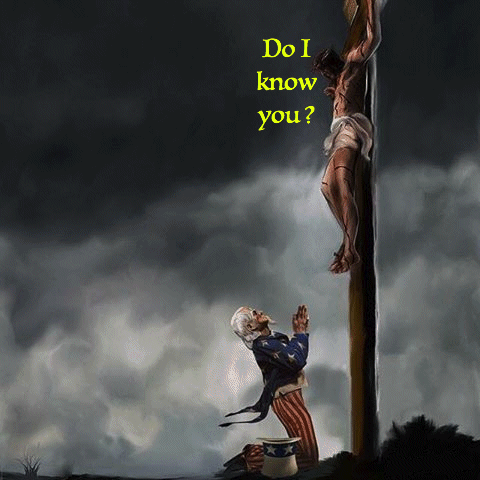What’s Wrong With Christian Pop Culture (Part One)
It’s one of the deadly sins: Envy.
Once upon a time, when The Church and religion carried far more temporal weight than they do now, they set the culture.
All the great monuments of the Western world were either callbacks to ancient pagan glories, or elaborations on the mystery of Christianity (“mystery” here used in its strict theological sense).
But a gap existed between the church of power and the church of piety -- and please, none of that mealy mouthed prudish false piety, but the real thing, a sense of righteousness that did not judge but loved, that did not order but served, that put compassion and charity into the hearts of its followers.
Not naked self-interest.
The church of power put up a good fight, but over the centuries the smaller church, the purer church -- pure not in a moralistic sense but in a metallurgical sense -- kept the faith while the large church…well, the larger church kept the money.
Books have been written on the difference between the two churches, but suffice it to say, when you really read what Jesus had to say, the motives behind a lot of what passes for modern Christianity leaps out in sharp focus and even sharper contrast.
See, modern American evangelical Christianity -- and, lordie, are we gonna skip centuries of back and forth with the Roman Catholic church and the dawn of Protestantism and the English civil war and a whole buncha other stuff that, yes, is vitally important but not right now, not in this post -- modern American evangelical Christianity got caught up in a numbers game.
Here’s an old Southern Baptist joke for you:
Heard about the two Southern Baptists who were shipwrecked on a desert island and immediately set a Sunday school attendance goal of 3?
American evangelical Christianity got this mindset so they could measure their success as Christians through numbers.
How many attended?
How many were “saved”?
More importantly, how many were donating how much?
The very explicit goal of American evangelical Christianity was to save everybody because blah blah blah Great Commission and “every knee should bow…and that every tongue should confess that Jesus Christ is Lord”. *
And that’s taken as a literal command.
See, they leave out the middle part that says “…every knee should bow, of things in heaven, and things in earth, and things under the earth; And that every tongue should confess that Jesus Christ is Lord…”
That verse is an ideal not a goal.
But you can’t quantify ideals.
Goals, however, you can…especially if they’re easy to count bended knees.
* (Ignore the fact Jesus taught that not everybody was going to be part of the kingdom of heaven, and if the parable of the sower and the seeds is any example, then only one in four is going to make the commitment to living the righteous life -- and once again, for the cheap seats, righteousness =/= prudery.)
© Buzz Dixon



